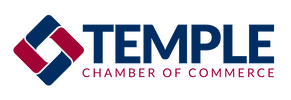|
Courtesy of the U.S. Chamber of Commerce
Even if you need to close due to health and safety concerns, there are ways to keep serving your customers during the coronavirus outbreak. Social distancing, while good for public health, is bad for small businesses. Foot traffic has dropped steeply since the coronavirus outbreak as more and more customers stay home and self-quarantine. Many business owners are worried that the impact of COVID-19 will be deeper and more long-lasting than anticipated. As a result, merchants in every industry are looking for ways to keep their customers during the coronavirus lockdown. Here are some tips to keep your employees and customers engaged from a distance. [Read more: The U.S. Chamber of Commerce Coronavirus Toolkit] COMMUNICATE PROACTIVELY WITH YOUR CUSTOMERS The situation is evolving rapidly, and no one is quite sure what news each day will bring. Customers can empathize with merchants facing a crisis, as long as you communicate with them properly. Let your customers know if you’re closing your doors, changing your hours and what steps you’re taking to keep your employees and work environment safe and clean. If your store is closing, notify your customers on your social media channels, through email and on your website. If your store is staying open, describe the steps you’re taking to mitigate risk. Download our customizable flyer that you can fill out and hang for customers to see. [Download: Coronavirus Prevention Flyer] Beyond letting customers know the logistics of your approach, give them a way to stay connected. Customers spending more time at home will still need to shop for things. Direct consumers to your e-commerce store, take orders over social media and be prepared for more people to view your website than in previous months. [Read more: Staying Connected With Customers Through the Coronavirus Outbreak] PROMOTE YOUR GIFT CARDS Gift cards provide you with an immediate infusion of cash and guarantee that a customer will return to your business in the future. At restaurants, where margins are already notoriously thin, gift cards can help you stay afloat until the crisis passes. For example, customers in Seattle are going out of their way to make sure local cafes, bars, and eateries don’t go under, and gift cards provide an easy way to keep cash flow moving. Offer an e-gift card program to reduce the risk of human contact, or work with a third-party delivery partner like Uber Eats to accept their gift cards at your location. STREAM OR VIDEO CHAT YOUR SERVICES Go digital with your services to continue to provide access to your customers who are sitting at home, wishing they could support your business. Tutors, personal trainers and even therapists are making themselves available virtually. Use a free tool like Google Hangouts, Skype or Zoom to offer your services remotely. If you’re in a service vertical that doesn’t lend itself to live videos, consider starting a Vimeo channel that allows customers to pay for videos with commonly requested information. Vimeo uses a paywall to give customers access to your content for a fee. For instance, an accountant can post a video detailing how to start a tax return (using a free tool like Loom to record their screen) and share it to their email list. A salon owner can post a video showing how to do in-home root touch-ups for customers that dye their hair. You may not be able to charge as much as your regular services, but it at least helps with cash flow in the meantime. HOLD AN EVENT ONLINE For some merchants, the biggest pain point has come from canceled events. “[Lobo is] turning six years old this summer and we were looking forward to planning our party, and now, so quickly, a wrench got thrown into that,” one business owner in Baltimore said. Recognize that most consumers are craving entertainment while being quarantined at home. This is where Facebook Live or Instagram Live can come in handy. If you had a store opening, product launch or anniversary celebration planned, move it to one of the live streaming social media channels. It’s a great way to keep your customers engaged and build goodwill, as well as to sell your products. Offer a special discount code to the first 100 people who stream your live event, or create an “exclusive” behind the scenes look at a new product to customers on your email list. Get creative with how you can make customers still feel invested in your brand and engaged with your content from a distance. USE DISCOUNTS TO YOUR ADVANTAGE Now is a good time to entice long-term purchases with discounts. If it aligns with your business model, encourage customers to lock in a one-year membership now at a cheaper rate. Gyms can offer a discount for memberships starting after the virus has passed. If you have a retail store, consider offering free or discounted shipping for online orders. Help other small businesses in your area by offering a 10% discount if a customer brings in a recent receipt from another small merchant (other than your competitors).
0 Comments
Today, Bell County issued a Stay Home, Stay Safe directive. The directive is in effect through April 3, 2020. The orders include exemptions for essential activities, such as grocery shopping and working for essential business, such as health care, law enforcement, and grocery stores. From Bell County: Examples of essential businesses include: Section 2 (b) For purposes of this Order, “Essential Businesses” means: i. Essential Healthcare Operations. Healthcare operations, including hospitals, clinics, dentist, pharmacies, pharmaceutical and biotechnology companies, other healthcare facilities, healthcare suppliers, mental health providers, substance abuse service providers, blood banks, medical research, laboratory services, or any related and/or ancillary healthcare services. Home-based and residential-based care for seniors, adults, or children are also considered healthcare operations. Healthcare operations also includes veterinary care and all health and welfare services provided to animals. This exemption shall be viewed broadly to avoid any impacts to the delivery of healthcare. Healthcare operations do not include fitness and exercise gyms and similar facilities. Healthcare operations do not include elective medical, surgical, and dental procedures as established in accordance with Subsection 1(g) of this Order. ii. Essential Government Functions. All services provided by political subdivisions of the State needed to ensure the continuing operation of those agencies to provide for the health, safety, education, and welfare of the public. Further, nothing in this order shall prohibit any individual from performing or accessing “Essential Government Functions.” All Essential Government Functions shall be performed in compliance with social distancing requirements of six feet, to the extent possible. iii. Essential Critical Infrastructure & Activities. Work that is necessary to the operations and maintenance of the critical infrastructure sectors as identified by the National Cybersecurity and Infrastructure Agency (CISA), Memorandum dated March 19, 2020 (attached to this Directive) including public works construction, residential and commercial construction, airport operations, water, sewer, gas, electrical, oil refining, roads and highways, public transportation, solid waste collection and removal, internet, and telecommunications systems (including the provision of essential global, national, and local infrastructure for computing services, business infrastructure, communications, and web-based services), financial institutions, defense and national security-related operations, essential manufacturing operations provided that they carry out those services or that work in compliance with social distancing requirements of six feet, to the extent possible. Essential Businesses providing essential infrastructure should implement screening precautions to protect employees and all activity shall be performed in compliance with social distancing guidelines attached. iv. Essential Retail. Food service providers, including grocery stores, warehouse stores, big-box stores, bodegas, liquor stores, gas stations and convenience stores, farmers’ 4 markets that sell food products and household staples. Food cultivation, including farming, fishing, and livestock. Businesses that ship or deliver groceries, food, goods or services directly to residences. Restaurants and other facilities that prepare and serve food, but only for delivery or carry out. Schools and other entities that typically provide free services to students or members of the public on a pick-up and takeaway basis only. The restriction of delivery or carry out does not apply to cafes and restaurants located within hospital and medical facilities. Laundromats, dry cleaners, and laundry service providers. Gas stations, automobile sales, auto-supply, auto and bicycle repair, hardware stores, construction supply stores, and related facilities. Businesses that supply products needed for people to work from home. v. Providers of Basic Necessities to Economically Disadvantaged Populations. Businesses that provide food, shelter, and social services, and other necessities of life for economically disadvantaged or otherwise needy individuals. vi. Essential Services Necessary to Maintain Essential Operations of Residences or Other Essential Businesses. Trash and recycling collections, processing and disposal, mail and shipping services, building cleaning and maintenance, warehouse/distribution and fulfillment, storage for essential businesses, funeral homes, crematoriums and cemeteries. Plumbers, electricians, exterminators, and other services providers who provide services that are necessary to maintaining the safety, sanitation, and essential operations of residences and Essential Businesses. Professional services, such as legal or accounting services, when necessary to assist in compliance with legally mandated activities. Businesses that supply other essential businesses with the support of supplies needed to operate. vii. News Media. Newspapers, television, radio, and other media services. viii. Childcare Services. Childcare facilities may continue to operate; however, to the extent possible, it is recommended that groups consist of no more than 10 and be kept separate. Bell County Stay home stay safe directive
federal Guidance on essential critical infrastructure workers during covid-19 response
The U.S. Small Business Administration (SBA) is offering federal disaster loans for working capital to small businesses suffering substantial economic injury as a result of the Coronavirus (COVID-19).
The Office of Governor Greg Abbott has received confirmation that an emergency declaration from the SBA has been approved so that businesses statewide will be eligible for disaster loan assistance. With COVID-19 identified as a qualifying event, Economic Injury Disaster Loans (EIDL) will be made available for businesses, franchisees, small agricultural coops, and some private non-profits throughout the state who have suffered substantial economic injury due to COVID-19. Unlike normal SBA 7a loans, these are directly through the SBA. EIDLs will be up to $2 million to provide the necessary working capital to help businesses overcome the temporary loss of revenue until normal operations resume. These loans may be used to pay fixed debts, payroll, rent or lease payments, accounts payable and other bills that can't be paid because of the disaster's impact. You can apply for an EIDL at www.sba.gov/funding-programs/disaster-assistance. Online is the fastest way to apply and learn about your business' eligibility. Before applying, you must first register with the Federal Emergency Management Agency (FEMA). To obtain a FEMA registration number, call FEMA at 1-800-621-3362 or visit www.DisasterAssistance.gov. For questions, please contact the SBA Disaster Assistance customer service center at 1-800-659-2955 or email disastercustomerservice@sba.gov. |
Archive
April 2024
Category
All
|
||||||||||||


